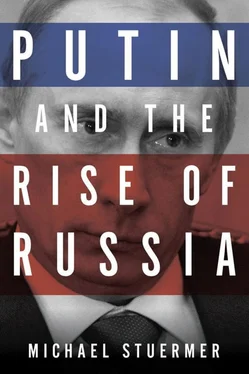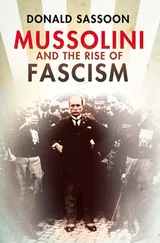The implications of Dmitry Medvedev
So what are, finally, the foreign policy implications of Dmitri Medvedev? The short answer is: more of the same, but sotto voce.
The long answer has to start from inside Russia and take into account the country’s vast strengths and its equally vast weaknesses, and the power structure at the top. Medvedev and Putin will need each other. Medvedev needs Putin because otherwise he would be alone among the wolves, a king without a country, moving the levers of power without much effect, not feared and therefore not followed. This is the reason why, when nominated by Putin in mid-December 2007, Medvedev responded, almost in a reflex, that he would need Putin as a tutor and, please, Putin should be prime minister.
But Putin, too, needs a non-threatening, reassuring successor with proven loyalty. Not only in a formal way, the incumbent of the Kremlin sooner or later invariably acquiring the magic of Russia’s centre and the mantle of the Tsar, but also in political reality to protect Putin from a backlash by all those whom the president from St Petersburg bypassed, removed or pushed aside, and the many powerful men who have an axe to grind with yesterday’s power-holder. Will Putin conform to the role of Number Two in the Russian hierarchy? Or will he signal a comeback to the Kremlin’s gilded halls, power and prestige, thus pulling the rug from under his successor’s feet? When asked whether he would hang a picture of Medvedev in the White House, Putin’s answer was, cryptically: ‘I have known Dima for so many years, I do not need a picture of him.’ If this was a joke, it was an ambiguous one.
So the question invariably arises: will Dmitri Medvedev be his own man? And, if he can manage to emancipate himself from Putin’s powerful presence as well as from the spookocracy around the Kremlin, what policies will he stand for? Everything is still in flux and the world may see what Russians fear most: an uneasy competition for power at the top. In the public mind this is associated with a new time of troubles, while the one thing all Russians, high and low, have come to crave is: stability, stability, stability. They have had too much trouble over the last hundred years, and the economic implosion, just nine years ago at the time of writing, when oil was at ten dollars and the Russian economy down and out, is still fresh in everybody’s mind. Compare the fall of the Soviet Union, the melt-down of the economy and run-away inflation with Weimar Germany, and then you realize what the stakes were a few years ago, and what could have happened but, mercifully, did not. Medvedev takes over at a time when Russia has 500 billion petrodollars in its state coffers. This is the upside, and one can observe the conspicuous glitz and unashamed glitter in the heart of Moscow and St Petersburg and even in Western Siberia in the oil-town of Khanty-Mansiysk – just as in Paris, Munich, London and Cannes, Baden-Baden or wherever the rich and beautiful of the international jet set mingle.
But there is a downside, too, and it is serious. Russia’s economy is a one-dimensional giant, based exclusively on high prices for oil and natural gas. Apart from natural resources and robust weaponry there is little that Russia has to offer on the world markets. At home, everything from fresh fruit to computers has to be imported. Foreign companies are only just beginning to set up shop in Russia, still wary of corruption, unpredictable tax regimes and extortion.
Moreover, if the last few years of rising oil revenue presented a window of opportunity, the Kremlin has failed to make the best possible use of it and reform the country from top to bottom. There is no judicial system deserving the name; Medvedev himself spoke about the ‘legal nihilism’ haunting the country. This is one of the crucial differences compared with India and even China. Corruption, a Russian disease through the centuries, is worse than ever before, and even Putin had to admit that he and his administration have failed to curb it. Most of the infrastructure is decrepit, including some of the older pipelines, suffering from underinvestment and negligence. Trains are moving slowly in order to move at all. Most of the internal air travel binding the vast Russian lands together is done by Ilyushin bombers fitted with rows of seats, many of the planes older than the pilots who fly them. Four out of ten villages, according to Putin, have neither running water nor electricity. Poverty is widespread, although salaries and pensions are at long last being paid, and rising. But inflation and public unrest – as in 2005 – loom large over an economy based on natural resources. The science-based economy of the future is far away, but it is precisely the promised land that Medvedev, as Putin before him, wants to reach. For this, the West is needed, both in terms of know-how and foreign direct investment.
Russia’s national interest
What foreign policy to expect, and what role for Russia in the world? This is a question not only about Medvedev but even more about the Russian establishment, including the Russian Orthodox Church, and, moreover, a question about the geopolitical challenges and aspirations of Russia. But, the tsar being the tsar, the question is not unjustified as to what long-term vision Medvedev will promote. And what place for Russia in the world? Wedded to the status quo or out to reverse, no longer through tanks and missiles, but through oil, gas, LNG and pipelines, the setbacks experienced by the empire that is no more but still looms like a giant shadow over the minds of many Russians? Does Medvedev share Putin’s oft-quoted view that the fall of the Soviet Union was one of the great disasters of the twentieth century?
Medvedev states, philosophically, that empires come and go but what matters is the enduring national interest. He means Russia, not the shadows of the Soviet Union. He will have to pay much more attention to the CIS countries, with Ukraine wanting to move closer to the EU and even NATO, and the Central Asian oil and gas states trying to avoid, after shedding their old Soviet dependence, a new dependence on Gazprom and Rosneft. The Kremlin will have to be more business-minded and less imperial in outlook and appearance. And there are also the frozen conflicts of South Ossetia, Abkazia, Nagorno-Karabakh and Transnistria to attend to that the Kremlin cannot control, nor anybody else. Medvedev will not be a walkover for anybody inside or outside. Putin, when talking to German Chancellor Merkel on International Women’s Day in 2007, warned the West against underestimating Medvedev: ‘He does not have to prove his liberal credentials but I can tell you that he is as much a Russian patriot – in the good sense – as I am. I do not think that our partners will find him any easier to deal with. He will stand up most actively for the Russian federation’s interests on the international stage.’ Medvedev will turn his attention to improving the ‘lone wolf’ image of Russia sported by his predecessor. But as far as substance is concerned he cannot afford to give anything away – nor will he.
In short, the outside world should not expect much change, and certainly not a U-turn, but keep in mind what Churchill, in describing Russia as ‘a riddle inside an enigma, shrouded in a mystery’, said in conclusion: ‘The only key is the national interest.’ So what is, finally, Russia’s national interest? First and foremost to be, once again, a great power with global reach, making sure that no important matter close to Russia’s new borders or anywhere around the globe is decided or settled against Russia. Kosovo’s unilateral declaration of independence in early 2008 is a case in point, which the Kremlin will not soon forgive or forget. Russian ‘greatness’ also implies that other powers should keep a respectful distance. This should be taken as a warning to NATO Councils preparing a Membership Action Plan for Ukraine in the near future and thinking about doing the same on behalf of Georgia. If the Europeans do not have the stomach for serious confrontation they should think again. Even the Americans must reflect on whether the soup is worth the calories. In a world troubled by climate change, weapons of mass destruction, terrorism, organized crime, failed states and, possibly, cyber war, they surely have more important business to attend to, such as containing Iran’s nuclear ambitions or keeping North Korea in the box. Russia, too, will want to preserve the Non-Proliferation Treaty of 1968, nuclear pre-eminence and the Russian place among the world powers. China and Russia have suggested to Washington a treaty to keep outer space off limits for military installations and equipment, so far without takers.
Читать дальше











